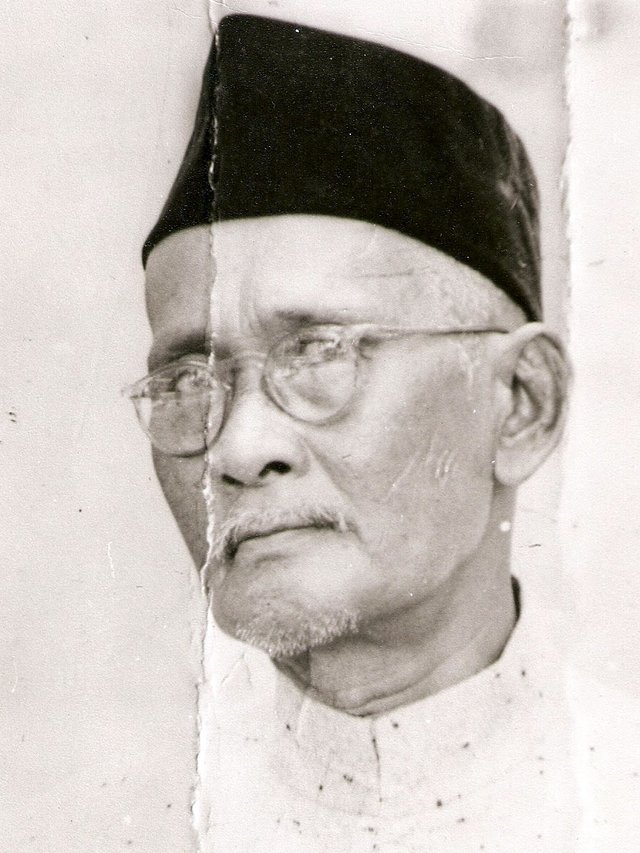Ask Raja Ali Haji, is he familiar with the Indonesian language?
This post is dedicated to @arfa, a young humanist from Aceh, to be more explored by him.
(Response to his post: I'm Acehnese, I'm Indonesian, But Writing on English. Why? ...)

Raja Ali Haji (Image source)
The young generation in my country today is blind to history, not knowing which roots and which are twigs. They see everything that appears on the surface and forget the roots so that they get lost into the chaos of thinking which flag to fly and which flag should be stored, in a wider cultural context. Concerning the language in Southeast Asia, which language is lingua franca, and which language is only recognized in a political geography.
Ask Raja Ali Haji, is he familiar with the Indonesian language?
Who is Raja Ali Haji so we should ask him?
I quote from id.wikipedia.org with Google assisted translation:
He (Raja Ali Haji) is well known as the first recorder of the foundations of Malayu grammar through his book: Pedoman Bahasa (The Malayu Language Guidance); The book that became the standard Malayu language. The standard Malayu language in the Indonesian Youth Congress of 28 October 1928 was designated as the national language, the Indonesian language.
So once again, does Raja Ali Haji know the Indonesian language, and is the book written by him only for Indonesians?
Look into the biography of Raja Ali Haji which I also quoted from the same source and assisted by Google in translation:
Raja Ali Haji bin Raja Haji Ahmad or simply by his pen name Raja Ali Haji (born in Selangor, ca. 1808 - died on Penyengat Island, Riau Islands, ca. 1873, is still disputed) is a 19th century scholar, historian and poet Bugis and Malay descent. (ca. = circa: around)
Born in Selangor in Malaysia, died in Riau in Indonesia, and is of Bugis and Malay descent, and he was clearly absent from the Indonesian Youth Congress of 28 October 1928!
I am honored by the way you make a reply to my post. Actually I just write what I feel, I'm happy @keuudeip interested in this. On this recommendation I will read some more new things again. Btw, this is also a new science for me. Thank you.
It's because you and your generation are the future, @arfa. Because there are many people claiming for themselves something, but they have no idea whatsoever about it. Hopefully the rewards of @steemit do not make us fools, and claim something that will be more convincing that we are righteous fools.
Btw, history shows us a vision, as well as new, even elusive, ways to change conditions for the better.
Thanks for the information buddy, nice post. Good job.
Thank you.
I always proud of your post abu @keuudeip, very innovative and can make me know some history in our area that is Aceh.
Thanks for sharing this post abu.
Thanks a lot, @herzaseptian.
your welcome abu.
Good knowledge as these are new for me, i learned a lot from this